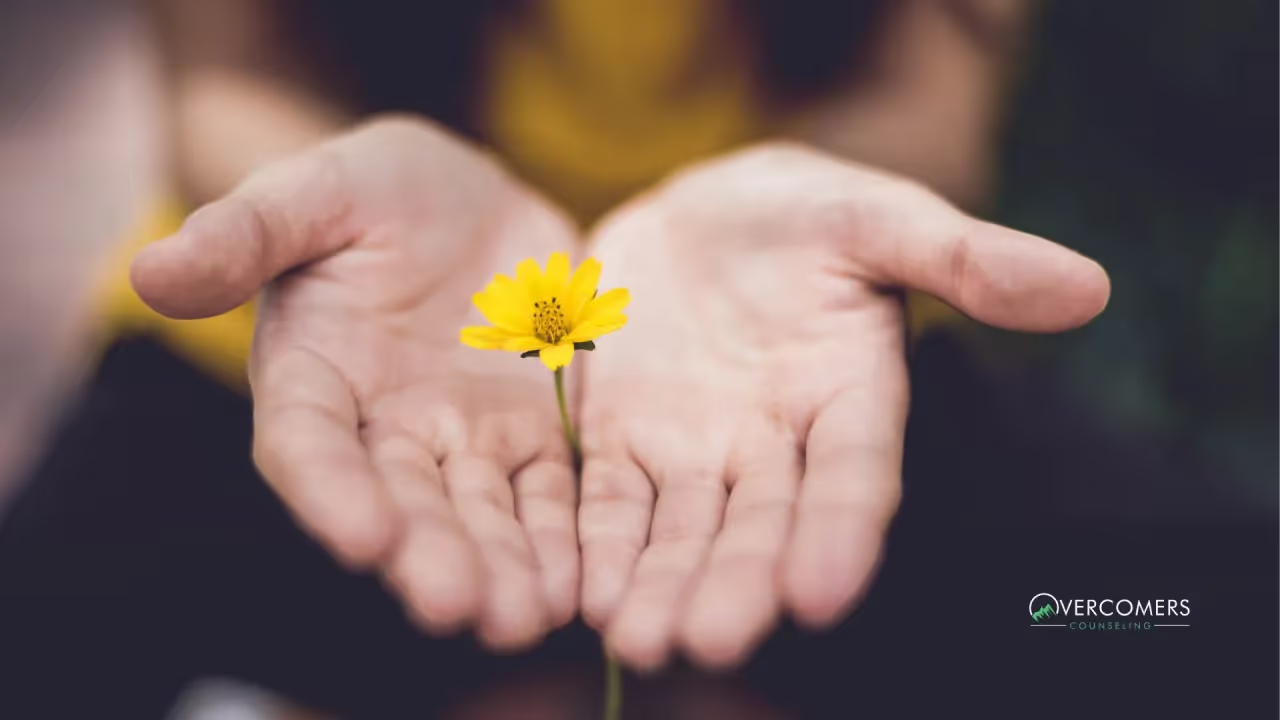One of my areas of specialty in mental health is anxiety and how it impacts people's lives.Anxiety is a completely normal human experience and it serves a...

One of my areas of specialty in mental health is anxiety and how it impacts people's lives.
Anxiety is a completely normal human experience and it serves a wonderful purpose.
If you struggle with controlling your anxiety then you may be thinking, "This guy is crazy."
But, give me just a minute to explain myself.
If it wasn't for anxiety, the human species may very well not exist.
Anxiety is an evolutionary wonder that protected our ancient ancestors from being eliminated entirely by much stronger, faster, more aggressive predators.
Anxiety is our built-in "spidey sense" that warns us not to do something that may kill us.
In our culture, and in most first-world countries, there aren't a lot of day-to-day encounters that are legitimate threats to our lives, but there are a lot of threats to our self-perception.
And this is where we run into trouble when dealing with anxiety.
As helpful as that "spidey sense" was to our ancestors, it kind of get's in the way of modern life, a lot.
Something a lot of my clients have reported is an underlying issue of how to separate what is under their control, and what is not.
This inability to distinguish between those two fundamental principles creates a LOT of anxiety.
So, today we are going to address this lesser spoken-about component of anxiety and look at some unorthodox approaches to reduce anxiety.
The tried and true method to reduce anxiety is to identify what makes you anxious, learn relaxation techniques, and then repeatedly expose yourself to your anxiety.
Without a doubt, this is the gold standard of anxiety treatment and I have talked about this approach many times in the past.
Today we're going to look at how to separate a more nuanced aspect of anxiety which is, in a word, control.
If we can't control something we often become anxious about it because the outcome may be disastrous and therefore make us look incompetent, unintelligent, unattractive, etc.
However, in reality, we don't need to control the outcome of anything, in fact, wanting to control the outcome is what is causing so much anxiety.
If you can let go, or surrender the outcome, then you simultaneously let go of the anxiety that comes with it.
This is a lot easier said than done, hence the purpose of this post.
The first step is to accept that this is true; that we don't need to know or control the outcome of a situation.
The second step is to identify what things are in your control and what things are outside of your control.
If you want to reduce anxiety, then you need to know this key difference, which brings us to your first reading assignment.
To reduce anxiety we need to surrender the outcome.
To surrender the outcome we need to identify what we have control over and what we do not have control over.
This is an area that the Stoic philosophers of ancient times did extraordinarily well.
The Stoics were a group of philosophers from ancient Greece; most notably Socrates, Seneca, Epictetus, and Marcus Aurelius.
These great thinkers of the distant past mapped out in no uncertain terms what a person has control over and what they do not have control over.
Two books, in particular, are on my non-negotiable, must-reads-for-a-fulfilling-life book list that is written by two of those four philosophical heroes: "The Art of Living" by Epictetus, and "The Meditations of Marcus Aurelius" by Marcus Aurelius.
I suggest starting with Epictetus as it is shorter and the modern translation is very reader-friendly.
After reading those you'll have an incredibly strong grasp on why it is so important to separate your life into what you can control and what you can't and it will reinforce the notion that not only should you surrender the outcome, but you must, to reduce anxiety.
If you don't have access to a library, money to purchase the books, or the internet to look them up, then I don't believe you, but also, don't worry I'll give you an exercise below to get you started in the right direction.

Philosophy isn't for everyone, but that's what is so great about the books mentioned above- they're practical and immediate.
It's not "arm-chair philosophy" where you go in circles debating things without merit.
It's straightforward, to the point, and its truth can be experienced right away.
The other thing about those two books is that they aren't like chapter books.
Each of them is a collection of paragraphs so you can pretty much pick it up at any point in the book, read a few paragraphs and set it back down.
But, like I said, I know it's not going to sound appealing to everyone so here's an exercise to help you reduce anxiety by clearing up the difference between what you can control and what you can't.
Sit down with a piece of paper and a pen or pencil; separate the paper into two columns.
At the top of the column on the left write "under my control" and on the top of the right column write "not under my control."
Start writing down everything that you think falls under each of those categories.
Don't worry about if you're right or wrong just go with what your gut tells you.
Then see if there are any commonalities that underly what you wrote in each column.
If you're having a hard time, think about recent interactions that didn't go well.
What did you do, say, think, and feel; were other people involved? What did they say, do, etc?
Then you can look and put those actions into the columns that you think they belong in.
Once you can truly see what you have control over, then you can start to surrender the outcome and let go of the anxiety that uncertainty creates.
How do you know if you got the right things in the columns?
Read those books!
But also, though it goes against every bone in my body to give away spoilers, I'll tell you.
Ready?
There are only two things that should be in the upper left column, I'm willing to bet you have a lot more than two, but here they are: "My thoughts" and "My actions"
In the right column there should only be one thing written down: "Everything else"
If you can fully adopt this philosophy of life then you will eliminate almost all the anxiety you carry with you.
You are born with everything you need to reduce anxiety because all you need is to tend to your thoughts and act accordingly.
Nothing else matters because nothing else is in your control.
Don't trust me?
Read those two books and then decide for yourself.
Ignoring anxiety can exacerbate symptoms and make it more challenging to manage over time. This can result in a negative impact on your personal, professional, and social life, leading to feelings of isolation and even depression.
To reduce your anxiety, you can practice relaxation techniques such as deep breathing, progressive muscle relaxation, guided imagery, and mindfulness practices. Additionally, regular exercise has been found to be beneficial in managing stress and improving mental health.
Addressing anxiety is crucial because it can significantly impact your quality of life and overall well-being. Left untreated, anxiety can lead to more severe mental health issues, relationship problems, and difficulty functioning in daily life.
The duration of anxiety counseling varies for each individual, depending on the severity of their anxiety and their progress in therapy. Our therapists will regularly assess your progress and adjust your treatment plan as needed.
Yes, Medicaid provides insurance coverage for therapy services specifically designed to help individuals struggling with anxiety, depression, and other mental health conditions.
It's important that you feel comfortable discussing personal matters with your therapist in order to open up and get more out of therapy sessions; therefore finding someone who meets certain criteria like experience level, expertise areas, and personality is key when selecting a therapist who can give meaningful feedback about how best handle issues related to anxiety or other mental health concerns.